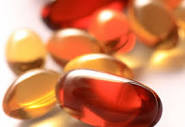 In a recent article from the New York Times (Feb 3, 2015) the New York Attorney General’s Office accused 4 national retailers ( GNC, Target, Walgreens, Walmart) of selling supplements that were fraudulent and in many cases contained unlisted ingredients and where even missing the main labeled ingredient the supplement was supposed to contain.
In a recent article from the New York Times (Feb 3, 2015) the New York Attorney General’s Office accused 4 national retailers ( GNC, Target, Walgreens, Walmart) of selling supplements that were fraudulent and in many cases contained unlisted ingredients and where even missing the main labeled ingredient the supplement was supposed to contain.
The analysis by the FDA was conducted on 5 different supplements @ GNC, Target, Walgreens, Walmart – in each case 4 out of 5 of these supplements had a serious problem with the ingredients. The article goes on to say that the Attorney General’s office has requested that these companies cease and desist selling these products.
Of course, this immediately brings up the question: if 4 out of 5 supplement products were a problem, what about the remaining 100’s of their brands that they continue to sell (what’s in them?).
Here are some things you should know about the supplements market in the USA:
- While the FDA (Food & Drug Administration) regulates dietary supplement products they do so under different guidelines than those covering ‘conventional’ foods and drugs. Under the Dietary Supplement and Health & Education Act (1994):
‘Manufacturers and distributors of dietary supplements and dietary ingredients are prohibited from marketing products that are adulterated or misbranded. That means that these firms are responsible for evaluating the safety and labeling of their own products before marketing (meeting GMP standards – Good Manufacturing Standards). regulations.
FDA is responsible for taking action against any adulterated or misbranded dietary supplement product after it reaches the market.’ US Food and Drug Administration
- Essentially what we have is self-regulation by the company manufacturing the supplement. GMP standards means that the facility in which the product is produced only ‘requires cleanliness of facility and grounds’.
- Many companies that manufacture under their own label have the supplements produced overseas where there is no governing body. This brings into question -what quality control/quality assurance standards are used by the retailer to ensure the ingredients & quantity on the label are actually in the supplement and do not contain any other problematic or carcinogenic items. Regardless, if these supplement companies are supposed to be ‘self-governing themselves under the FDA rules’ they should be testing the products (for quality assurance) before they are sold to the public. Many do not. The cheaper the supplement the more likely it is to contain lots of fillers ( some causing allergies), dyes, minimal amounts of the vitamin, mineral or herb , or, as in the cases cited in this article- they do not even contain the herb, vitamin or mineral.
- BTW- binders are different from fillers- a binding agent is what keeps the pill or capsule together and should be hypo-allergenic. If there are more than 2- 4 items ( binders) under “other ingredients” you can rest assured that there are a lot more ‘fillers’ and a lot less supplement.
What can you do to protect yourself and family against fraudulent supplements?
- Request a CoA ( Certificate of Analysis) from the company you are buying from. Serious supplement manufacturers go through a certification process (require all raw materials arrive with a Certificate of Analysis from the supplier for every lot sent. A Certificate of Analysis documents the identity of the material, as well as the material’s potency and purity).
Any company that says a CoA is not available, is most likely trying to hide something. While it may be too arduous a task to supply every person in the USA with a CoA, they should be willing and able to provide it through any professional health provider, such as your Nutritionist, Naturopathic Doctor, Chiropractor , Acupuncturist, Osteopath, health coach etc. If a CoA (or equivalent) does not exist …. then you owe it to yourself and your family to change to a better brand.
- You should be wary of buying ‘cheaper’ brands that are under private label ( Kirkland, Target, GNC, Walgreens, Walmart, Safeway , private pyramid companies and dozens of mail order as well as ‘on-line’ companies.) This does not suggest that all/ any of these companies are fraudulent or provide sub-standard products …… but at the end of the day you have to ask yourself why one brand charges higher prices for the so-called ‘same’ item while another is half the price or less. Unfortunately, the rule of thumb in the unregulated or ‘self-regulated’ supplement market today is ….. you get what you pay for.
- Yes, a good brand is a bit more expensive, but the ingredients are actually something that your body can and does use. At the end of the day – what is the point of paying good money for a poor quality supplement that will have minimal or no effect. Sounds like money down the drain.
[sbscrbr_form]

